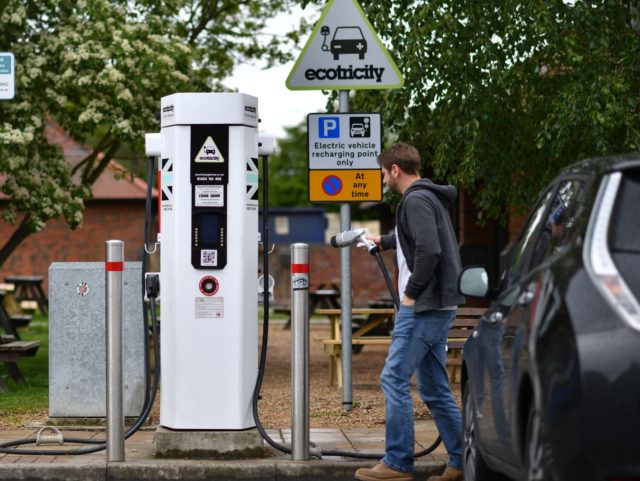Tax incentives put in place by the UK Conservative party to push people towards green motoring could cost the exchequer billions, underlining the likelihood of new taxes being raised once electric cars are established, wiping out financial benefits for owners.
A push to get motorists in the UK to adopt the use of electric vehicles is to cost the public purse billions of pounds in lost revenue by 2031, according to a new report.
The newly published document reinforces claims previously made by government officials, who have argued that electric cars would need to be taxed more to make up for shortfalls in road and fuel tax caused by a move away from combustion engine-powered vehicles.
According to a new report released by the Resolution Foundation, the UK can expect to lose out on £8bn in tax by 2031 from as a result of decreasing intake from fuel duty alone, with the switch to electric vehicles set to wipe £35bn in total revenue over the next two decades across the various taxes levied on motoring, and from which electric cars are presently exempt.
As a result, the think tank says that the British government will either need to create new motoring or road taxes that will target electric vehicles, or find a way of generating billions in tax from other sources. Unfortunately, the government simply making do with less does not appear to be under consideration.
The Resolution Foundation’s claims match similar occurrences in other European countries.
According to a report by the Irish government, the Republic is expecting to see 8 per cent of its total tax haul put in danger by the move towards axing petrol and diesel from the roads.
These predictions by the think tank also largely echo claims made by the UK’s own government officials, who have started pushing for new taxes to make up for the soon-to-be lost revenue, with a “pay-per-mile” system being suggested by the UK’s Climate Change Committee.
“Fuel duties are not where the action is any longer,” said the group’s chief executive, Chris Stark. “I don’t expect the Government to raise fuel duty because the bigger challenge is now how road transport is taxed in a world where vehicles have no emissions.”
“The one thing I think we can be confident that the Treasury will reform is fuel duties and the Chancellor has 28 billion reasons to worry about the Prime Minister’s commitment to phase out the sales of petrol and diesel cars and vans by 2030,” Stark also claimed.
Delingpole: BoJo’s Electric Car Revolution Is Going to Be a Disaster https://t.co/haI4dydieN
— Breitbart London (@BreitbartLondon) August 5, 2021
The UK government has been pushing hard for the public uptake of electric vehicles, with the Conservative party government putting billions towards getting motorists to switch as part of the UK’s plan for net-zero carbon emissions.
Ultimately, Boris Johnson’s government has said that it wants to ban the sale of new petrol and diesel cars from 2030, with hybrids to be phased out from 2035.
“We cannot go on as we are,” Prime Minister Boris Johnson is reported as previously saying. “We have to adapt our economy to the green industrial revolution.”
“UK sales of EVs are now increasing at 70 per cent a year, and in 2030, we’re ending the market for new hydrocarbon ICEs, internal combustion vehicles, ahead of other European countries,” he also noted.
However, critics have noted that there are significant problems with the switch to electric vehicles.
“…new sales will grow but will not meet these forecasts as cars too expensive, range still too limited at the affordable end of market,” Reform UK leader Richard Tice told Breitbart London, also emphasising that the “the cost & time to install chargers will hold back the market”.

COMMENTS
Please let us know if you're having issues with commenting.